All Stories
-
 Neuroscience
NeuroscienceFDA advisory panel declines to support a controversial Alzheimer’s treatment
The fate of an Alzheimer’s drug, developed by pharmaceutical company Biogen, remains up in the air.
-

-

In praise of serendipity — and scientific obsession
Editor in chief Nancy Shute writes about the role of serendipity and scientific obsession played in this month's feature stories.
By Nancy Shute -
 Tech
TechA smartwatch app alerts users with hearing loss to nearby sounds
With a new smartwatch app, users who are deaf or hard of hearing can get alerts that an alarm is going off or someone is knocking at the door.
-
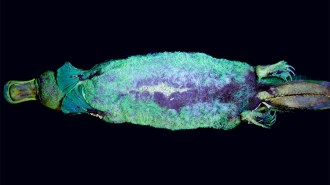 Animals
AnimalsA blue-green glow adds to platypuses’ long list of bizarre features
The discovery of platypuses’ fluorescent fur has researchers wondering if the trait is more widespread among mammals than anyone has realized.
-
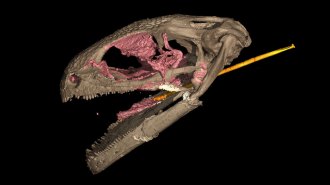 Life
LifeAn ancient amphibian is the oldest known animal with a slingshot tongue
A tiny amphibian that lived 99 million years ago waited for invertebrate prey before snatching them with a swift, shooting tongue.
-
 Plants
PlantsHow passion, luck and sweat saved some of North America’s rarest plants
As the list of plants no longer found in the wild grows, botanists and conservationists search for signs of hope — and sometimes get lucky.
By Susan Milius -
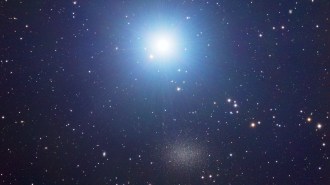 Space
SpaceThe Milky Way makes little galaxies bloom, then snuffs them out
When dwarf galaxies cross the Milky Way’s frontier, our galaxy compresses their gas, sparking star birth, but then robs them of their star-making gas.
By Ken Croswell -
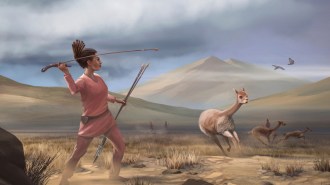 Anthropology
AnthropologyFemale big-game hunters may have been surprisingly common in the ancient Americas
A Peruvian burial that indicates that women speared large prey as early as 9,000 years ago sheds new light on gender roles of ancient hunter-gatherers.
By Bruce Bower -
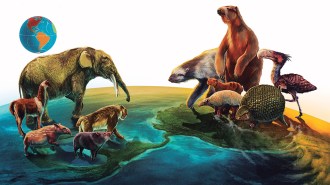 Paleontology
PaleontologyWhy South America’s ancient mammals may have lost out to northern counterparts
When North and South America joined millions of years ago, mammals from the north fared better in the meetup. Extinctions in the south may be why.
By Jake Buehler -
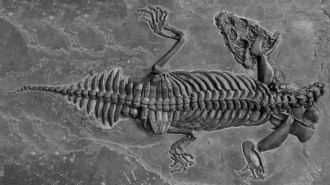 Animals
AnimalsA surprisingly tiny ancient sea monster lurked in shallow waters
Scientists have found a new species of marine reptiles called nothosaurs from around 240 million years ago.
-
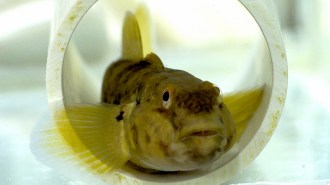 Animals
AnimalsA fish’s fins may be as sensitive to touch as fingertips
Newfound parallels between fins and fingers suggest that touch-sensing limbs evolved early, setting the stage for a shared way to sense surroundings.